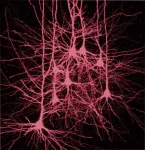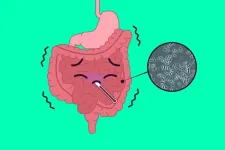(Press-News.org) It has been known for nearly 20 years that slow, synchronous electrical waves in the brain during deep sleep support the formation of memories. Why that is was previously unknown. Now, writing in the journal Nature Communications, a team of researchers from Charité – Universitätsmedizin Berlin posits an explanation. According to the study, the slow waves make the neocortex, the location of long-term memory, especially receptive to information. The findings could help to optimize the treatment approaches that are intended to support memory formation from outside.
How do permanent memories form? Experts believe that while we sleep, our brains replay the events of the day, moving information from the location of short-term memory, the hippocampus, to the long-term memory located in the neocortex. “Slow waves” are especially key to this process: slow, synchronous oscillations of electrical voltage in the cortex that occur during the deep sleep phase. They can be measured using an electroencephalogram (EEG). The waves originate when the electrical voltage in many neurons rises and falls simultaneously once per second.
“We’ve known for many years that these voltage fluctuations contribute to the formation of memory,” explains Prof. Jörg Geiger, director of the Institute of Neurophysiology at Charité and the head of the newly published study. “When slow-wave sleep is artificially augmented from outside, memory improves. But what we didn’t know until now was what exactly is happening inside the brain when this occurs, because it is extremely difficult to study the flows of information inside the human brain.”
Slow waves strengthen synapses
He and his team have now used intact human brain tissue, which is extremely rare, to clarify the processes that are very likely to underlie the formation of memory during deep sleep. According to their findings, the slow electrical waves influence the strength of synaptic connections between the neurons in the neocortex – and thus their receptivity.
For their study, the team of researchers studied intact neocortical tissue samples taken from 45 patients who had undergone neurosurgery to treat epilepsy or a brain tumor at Charité, the Evangelisches Klinikum Bethel (EvKB) hospital, or the University Medical Center Hamburg-Eppendorf (UKE). The researchers simulated the voltage fluctuations typical of slow brain waves during deep sleep in the tissue and then measured the nerve cells’ response. To achieve this, they used glass micropipettes positioned precisely down to the nanometer. To “listen in” on the communications among multiple nerve cells connected through the tissue, they used up to ten “pipette feelers” at once – an extra large number for this method, which is known as the multipatch technique.
Perfect timing contributes to memory formation
The team of researchers discovered that the synaptic connections between neurons in the neocortex are maximally enhanced at a very specific point in time during the voltage fluctuations. “The synapses work most efficiently immediately after the voltage rises from low to high,” explains Franz Xaver Mittermaier, a researcher at the Institute of Neurophysiology at Charité and the first author of the study. “During that brief time window, the cortex can be thought of as having been placed in a state of elevated readiness. If the brain plays back a memory at exactly this time, it is transferred to long-term memory especially effectively. So, slow-wave sleep evidently supports memory formation by making the neocortex particularly receptive for many short periods of time.”
This knowledge could be used to improve memory, for example in mild cognitive impairment in the elderly. Research groups around the world are working on methods of using subtle electrical impulses – transcranial electrostimulation – or acoustic signals to influence slow waves during sleep. “Right now, though, these stimulation approaches are being optimized through trial and error, which is a laborious and time-consuming process,” Geiger says. “Our findings about the perfect timing could help with this. Now, for the first time, they allow for targeted development of methods of stimulation to boost memory formation.”
*Mittermaier F. X. et al. Membrane potential states gate synaptic consolidation in human neocortical tissue. Nat Commun 2024 Dec 12. doi: 10.1038/s41467-024-53901-2
Slow brain waves
Slow waves, or slow oscillations, are a type of electrical wave arising in the brain during deep sleep. “Delta” waves comprise a certain frequency range that shows up in an EEG. These are slow brain waves that can arise outside sleep as well, as part of a disease or disorder. This broader term is sometimes used synonymously with the term “slow waves.”
About the study
When surgery is performed for drug-resistant epilepsy or brain tumors, it is often medically necessary to remove small fragments of the neocortex. The resected tissue can be preserved for up to two days outside the body in an artificial nutrient solution before activity ceases. The explicit consent of patients was required in order to examine this valuable tissue for the study that has just been published. The research group is profoundly grateful to the patients for their consent. The study was conducted in close cooperation between the basic research and clinical arms of Charité and the University Clinic for Neurosurgery at Evangelisches Klinikum Bethel (EvKB) in Bielefeld and the Department of Neurosurgery at the University Medical Center Hamburg-Eppendorf (UKE). Under the leadership of the Institute of Neurophysiology, the following were involved on Charité’s side: the Department of Neurosurgery, the Department of Neurology with Experimental Neurology, the Institute of Integrative Neuroanatomy, the Neuroscience Research Center, the NeuroCure Cluster of Excellence, the Division of Pediatric Neurosurgery, and the Department of Pediatric Neurology.
END
Why deep sleep is helpful for memory
Slow brain waves make neocortex especially receptive
2024-12-12
ELSE PRESS RELEASES FROM THIS DATE:
Sleepers made from recycled plastic could make railways even more eco-friendly
2024-12-12
Railways, the most climate-friendly mode of transport bar long-distance buses, are bound to play an important role in the fight for net zero. The total emissions of railway travel are currently 31 grams of CO2 equivalents (CO2e) per passenger kilometer, half the amount as for the most economical electrical vehicles.
But the carbon emissions of railway traffic can be further reduced, shows a new study in Frontiers in Sustainability by authors in Finland. This is because typical construction materials such as steel and concrete are energetically costly to produce, transport, handle, and maintain. Even on the ...
Ugh, my stomach: Identifying amino acids that prevent sporulation in food poisoning
2024-12-12
Food poisoning is a common, yet unpleasant, illness caused by eating contaminated items. It is sometimes caused by Clostridium perfringens, a pathogen widely found in soil and the intestinal tracts of animals.
The pathogen multiplies in environments with little oxygen, for example, curry stored in a pot. After ingestion of the pathogen, they form spores in the small intestinal tracts. The toxins produced during spore formation cause diarrhea and abdominal pain, but the underlying mechanism of spore formation has not been fully understood.
Associate Professor Mayo Yasugi’s team at Osaka Metropolitan University’s ...
Air pollution in India linked to millions of deaths
2024-12-12
A new study from Karolinska Institutet shows that long-term exposure to air pollution contributes to millions of deaths in India. The research, published in The Lancet Planetary Health, emphasises the need for stricter air quality regulations in the country.
Air pollution consisting of particles smaller than 2.5 micrometres in diameter, PM2.5, can enter the lungs and bloodstream and is a major health risk in India. Researchers have now examined the link between these particles and mortality over a ten-year ...
Study finds widening inequalities in child vaccination rates across England
2024-12-12
Inequalities in childhood vaccination are widening in England, with uptake rates of five key vaccines consistently lower in young children living in areas of higher deprivation from 2019 to 2023, finds a study published by The BMJ today.
The researchers say vaccine uptake was below the World Health Organization’s recommended 95% target for all vaccinations studied and call for urgent action to strengthen systems for childhood vaccination.
Protecting children from vaccine preventable diseases ...
Investigation raises new concerns over landmark trial for top selling anti-platelet drug
2024-12-12
An investigation published by The BMJ today raises new concerns over the landmark clinical trial (PLATO) that was used to gain worldwide approval for the anti-platelet drug ticagrelor (Brilinta in the US and Brilique in Europe), manufactured by AstraZeneca.
Peter Doshi, senior editor at The BMJ, reveals new details that show problems in data reporting after obtaining primary PLATO trial records and unpublished data through a freedom of information request.
The PLATO trial was published in the New England Journal of Medicine (NEJM) in 2009. Assessing over 18,000 patients in 43 countries, investigators reported that ticagrelor ...
Making chemotherapy for Hodgkin lymphoma kinder to patients
2024-12-12
A simple change to the chemotherapy regimen for people with Hodgkin lymphoma could reduce the long-term health impacts that can result from treatment, according to researchers in Cambridge. The findings could lead to the national guidance on chemotherapy treatment for these patients being revised.
The study, published today in The Lancet Oncology was led by Cambridge University Hospitals NHS Foundation Trust (CUH) and the Wellcome Sanger Institute. It compares the lasting effects of two chemotherapy regimens used to treat Hodgkin lymphoma in younger adults. Hodgkin lymphoma ...
ACS study finds early-onset colorectal cancer cases surge globally
2024-12-12
ATLANTA, December 11, 2024 — A new study led by American Cancer Society (ACS) researchers shows that early-onset colorectal cancer (CRC) incidence rates are rising in 27 of 50 countries/territories worldwide, 20 of which have either exclusive or faster increases for early-onset disease. In 14 countries, including the United States, rates are increasing in young adults while stabilizing in those 50 years and older. The research is published today in the journal The Lancet Oncology.
“The ...
Fluctuating blood pressure tied to problems with thinking skills
2024-12-11
EMBARGOED FOR RELEASE UNTIL 4 P.M. ET, WEDNESDAY, DECEMBER 11, 2024
MINNEAPOLIS – Older adults whose blood pressure fluctuates over time may be more likely to have problems with thinking and memory skills, according to a study published in the December 11, 2024, online issue of Neurology®, the medical journal of the American Academy of Neurology. The association was found in Black participants but not in white participants in the study.
The study does not prove that fluctuations in blood pressure cause problems with thinking skills; it only shows an association.
“These results suggest ...
Scientists find promising new target for antidepressants—in the gut
2024-12-11
Researchers have discovered new connections between the gut and brain that hold promise for more targeted treatments for depression and anxiety, and could help prevent digestive issues in children by limiting the transmission of antidepressants during pregnancy.
The study, published in the journal Gastroenterology, shows that increasing serotonin in the gut epithelium—the thin layer of cells lining the small and large intestines—improves symptoms of anxiety and depression in animal studies. The researchers also found ...
Antidepressants may act in gut to reduce depression and anxiety
2024-12-11
NEW YORK, NY (Dec. 11, 2024)--Most of us have experienced the effects of moods and emotions on our gastrointestinal tract, from “butterflies” in the stomach caused by nervousness to a loss of appetite when we’re feeling blue.
A new study in animals suggests that targeting antidepressant medications to cells in the gut could not only be an effective treatment of mood disorders like depression and anxiety but may also cause fewer cognitive, gastrointestinal, and behavioral side effects for patients and their children than current treatments.
“Antidepressants like Prozac and Zoloft that raise serotonin levels are important first-line ...
LAST 30 PRESS RELEASES:
Industrial research labs were invented in Europe but made the U.S. a tech superpower
Enzymes work as Maxwell's demon by using memory stored as motion
Methane’s missing emissions: The underestimated impact of small sources
Beating cancer by eating cancer
How sleep disruption impairs social memory: Oxytocin circuits reveal mechanisms and therapeutic opportunities
Natural compound from pomegranate leaves disrupts disease-causing amyloid
A depression treatment that once took eight weeks may work just as well in one
New study calls for personalized, tiered approach to postpartum care
The hidden breath of cities: Why we need to look closer at public fountains
Rewetting peatlands could unlock more effective carbon removal using biochar
Microplastics discovered in prostate tumors
ACES marks 150 years of the Morrow Plots, our nation's oldest research field
Physicists open door to future, hyper-efficient ‘orbitronic’ devices
$80 million supports research into exceptional longevity
Why the planet doesn’t dry out together: scientists solve a global climate puzzle
Global greening: The Earth’s green wave is shifting
You don't need to be very altruistic to stop an epidemic
Signs on Stone Age objects: Precursor to written language dates back 40,000 years
MIT study reveals climatic fingerprints of wildfires and volcanic eruptions
A shift from the sandlot to the travel team for youth sports
Hair-width LEDs could replace lasers
The hidden infections that refuse to go away: how household practices can stop deadly diseases
Ochsner MD Anderson uses groundbreaking TIL therapy to treat advanced melanoma in adults
A heatshield for ‘never-wet’ surfaces: Rice engineering team repels even near-boiling water with low-cost, scalable coating
Skills from being a birder may change—and benefit—your brain
Waterloo researchers turning plastic waste into vinegar
Measuring the expansion of the universe with cosmic fireworks
How horses whinny: Whistling while singing
US newborn hepatitis B virus vaccination rates
When influencers raise a glass, young viewers want to join them
[Press-News.org] Why deep sleep is helpful for memorySlow brain waves make neocortex especially receptive






